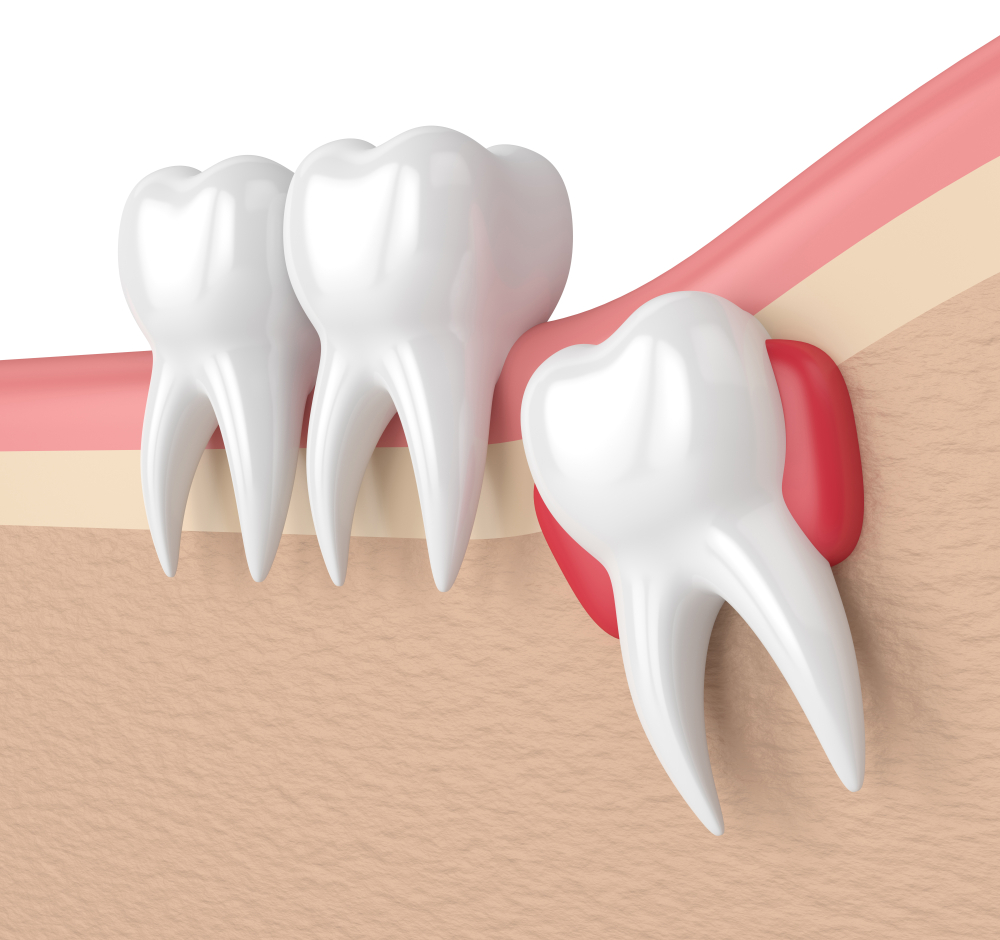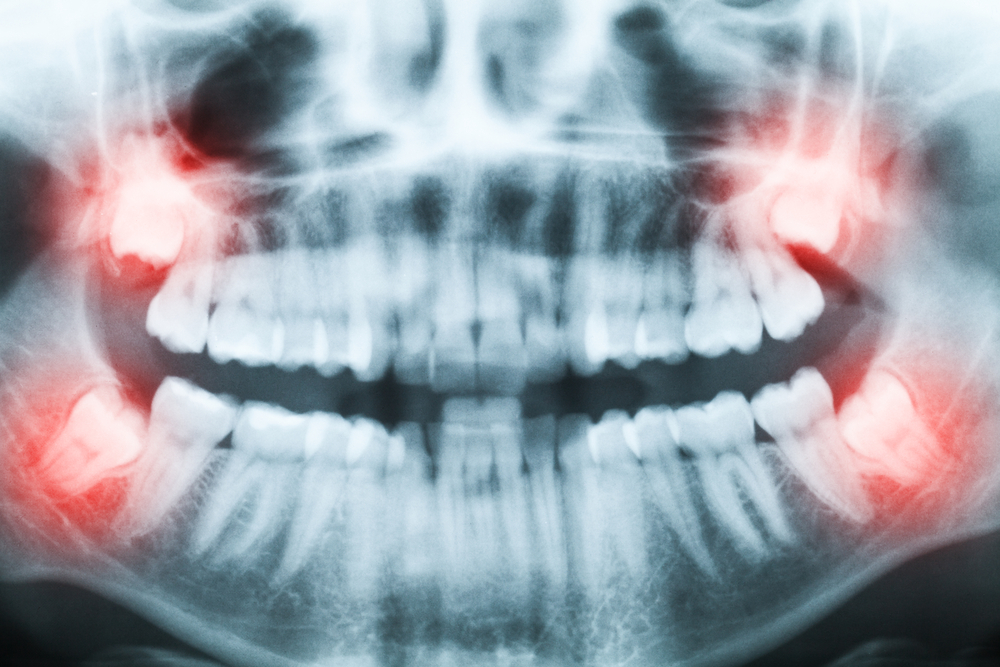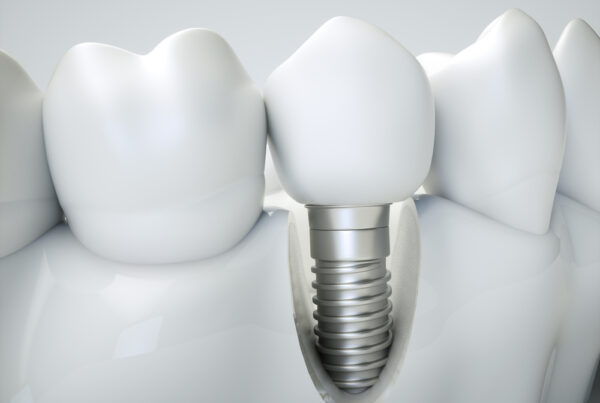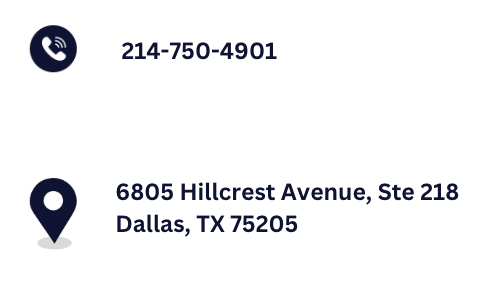Wisdom teeth extractions can be quite painful and become problematic as we age. These teeth are the last to emerge, and often, there isn’t enough room for them, leading to pain, swelling, and sometimes infection. It’s a common issue many people face.
If you’re experiencing these problems, wisdom teeth removal might be necessary.
This procedure, though daunting, is routine for University Park dentists and oral surgeons. Today, Dr. Drew Randall at Randall Dentistry will explain the signs that indicate the need for removal, the extraction process, and what recovery entails.
Signs You Might Need Your Wisdom Teeth Removed
If you’re unsure whether your wisdom teeth should be removed, consider these signs:
- Pain in the Back of Your Mouth: This is a clear indicator that something is amiss.
- Swollen, Red, or Bleeding Gums: These symptoms are important to address.
- Impacted Teeth: Occurs when wisdom teeth are stuck and cannot emerge through the gums.
- Jaw Stiffness or Difficulty Opening Your Mouth: This could be related to your wisdom teeth.
- Crowding or Shifting of Other Teeth: This may happen as wisdom teeth push against other teeth.
- Frequent Infections: These often occur at the back of the mouth and are a sign of problems.
Seeing these signs? It’s time to discuss with your dentist, who can confirm if your wisdom teeth are the culprit. Addressing this early can prevent further complications.
The Wisdom Teeth Removal Process
Feeling anxious about the removal process? Here’s a straightforward breakdown:
- Consultation and Planning: It starts with a visit to the dentist or oral surgeon for X-rays and planning.
- Choosing Anesthesia: You might receive local anesthesia (awake but numb), sedation (relaxed and awake), or general anesthesia (completely asleep).
- The Removal Procedure: The surgeon will remove the wisdom teeth, possibly sectioning them for easier extraction.
- Recovery Time: Post-extraction, you’ll rest briefly as the anesthesia wears off before going home with care instructions.
- Home Care: Recovery includes eating soft foods, managing pain with medication, and keeping the area clean to prevent infection.
This structured process aims to remove troublesome teeth and alleviate your pain, with comprehensive support from your dental team.
Post-Surgery Recovery: What to Expect
Post-extraction, understanding the recovery process can alleviate concerns:
- Rest and Heal: Take it easy for the first 24 hours to promote healing.
- Swelling and Bruising: Use ice packs to reduce swelling.
- Pain Management: Follow your surgeon’s instructions for using prescribed or over-the-counter pain medication.
- Eating Soft Foods: Opt for soft foods like soup and yogurt initially.
- Oral Hygiene: Maintain cleanliness with gentle rinsing but avoid brushing the extraction sites directly.
- Activity Level: Gradually resume normal activities, avoiding anything strenuous to prevent bleeding.
Recovery varies, but these guidelines can help ensure a smoother process. Always follow your dental team’s advice and contact them with any concerns.
Potential Risks and Complications
Being aware of potential complications can help you avoid them:
- Dry Socket: A painful condition where the blood clot at the extraction site is dislodged.
- Infection: Watch for fever, pus, or increased pain, and maintain good oral hygiene.
- Bleeding: Some bleeding is normal, but excessive bleeding should be addressed.
- Nerve Damage: Rare, but possible, causing changes in sensation.
- Damage to Nearby Teeth: Also rare, but can occur during the extraction.
- Jaw Problems: Stiffness and difficulty opening your mouth may occur but typically improve.
Stay vigilant during recovery and contact your dental professional if you notice anything unusual.
The Impact of Delaying Treatment
Delaying wisdom teeth removal can lead to various problems:
- Increased Pain: Issues can become more painful and complex over time.
- Infection Risk: Impacted teeth can cause serious infections, impacting overall health.
- Damage to Other Teeth: Wisdom teeth can push against and damage adjacent teeth.
- Cysts and Tumors: Though rare, cysts or tumors can develop, causing further damage.
- Gum Disease: Difficult-to-clean wisdom teeth can lead to gum disease and decay.
- Overall, Health Issues: Oral health affects your entire body; delaying treatment can exacerbate other health conditions.
Addressing wisdom teeth issues promptly can prevent unnecessary pain and more severe treatments later. Early consultation with a dental professional like Dr. Drew Randal is crucial.
Act Now for Your Dental Health
Here’s our approach at Dr. Drew Randall’s clinic:
- Comprehensive Consultation: We begin with a detailed evaluation using advanced imaging.
- Personalized Treatment Plan: Dr. Randal develops a tailored plan focusing on minimal discomfort and quick recovery.
- Supportive Aftercare: We provide detailed post-surgery care instructions to ensure a smooth and comfortable recovery.
Dr. Randall proudly serves University Park Tx, Highland Park TX, and Dallas TX! Schedule your consultation today, and visit our website for more information on our dental care approach. Let us help you resolve your wisdom teeth issues and enjoy a healthy, pain-free smile.
Curious how much it is to remove your wisdom teeth? Take our short survey and get and estimate cost for your treatment!
Wisdom Teeth Extraction: Questions & Answers
Here are some common questions and answers regarding the wisdom teeth removal process:
Is the wisdom teeth removal process painful?
You will not feel any pain during the procedure because of the anesthesia. Any discomfort after the surgery can be managed with prescribed or over-the-counter pain relievers.
How long is the recovery after wisdom teeth removal?
Recovery typically takes a few days to a week. Most people are able to return to normal activities within a day or two, though some precautions are necessary.
Can I eat normally after wisdom teeth extraction?
You should eat soft, easy-to-chew foods for the first few days after the surgery. As your comfort level improves, you can gradually reintroduce solid foods.
What’s a dry socket, and how can I avoid it?
A dry socket occurs when the blood clot at the surgical site gets dislodged, exposing the bone. To avoid this, do not smoke, avoid using straws, and follow your surgeon’s care instructions carefully.
Will I be awake during the extraction?
The type of anesthesia used will determine if you are awake during the extraction. Options include local anesthesia (you’re awake but numb), sedation (you’re relaxed and partially awake), and general anesthesia (you’re completely asleep). Your dental professional will recommend the best option for your specific situation.
How do I care for my mouth after surgery?
Follow your surgeon’s instructions carefully. This will likely include gentle rinsing with salt water, avoiding certain foods, and not disturbing the surgical site.
When should I call my dentist or surgeon post-surgery?
If you experience severe pain, excessive bleeding, signs of infection (like fever or pus), or any other concerning symptoms, contact your University Park dentist or surgeon immediately.
How soon can I go back to work or school after having my wisdom teeth removed?
Most people can return to work or school within a couple of days, depending on the complexity of the extraction and their individual pain tolerance.
Randall Dentistry
Proudly serving University Park Tx, Highland Park Tx & Dallas Tx.
Find out why everyone is talking about Randall Dentistry and Dr. Drew Randall. Come in and see the great dental care we offer!
Contact Us
Phone:
214-750-4901 (office)
Address:
6805 Hillcrest Avenue, Suite 218
Dallas, TX 75205







